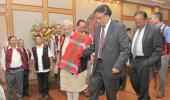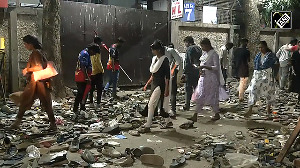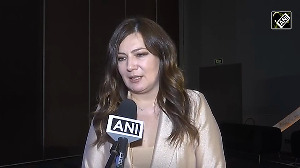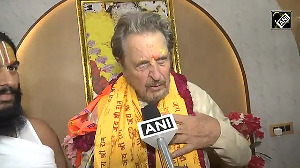National Security Advisor Ajit Doval will hold crucial talks with the top US leadership, including his counterpart Jake Sullivan, on the first high-level dialogue on Initiative for Critical and Emerging Technologies (iCET).
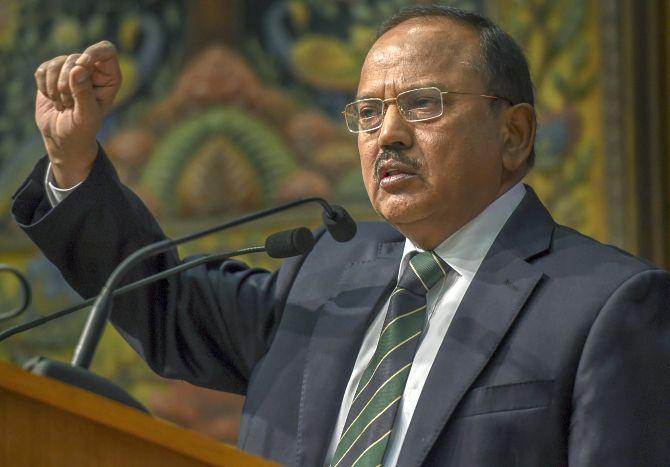
Officials, academicians and industry experts believe the talks could be the ”next big milestone” in the India-US relationship after the India-US nuclear deal.
Doval will arrive in Washington, DC, on Monday for the talks.
Officials on both sides remained tight-lipped on the details of the ambitious iCET meeting, the deliverables of which are expected to be announced after the conclusion of the meetings of the two sides at the White House on January 31.
Both sides expect that the dialogue would lay the foundation for developing a trusted partner ecosystem between the corporate sectors, so that the two countries with public-partner partnership, driven by a culture of startups, can successfully address the challenges posed by authoritarian regimes in the domain of technology and scientific research.
The iCET was first mentioned in a joint statement after the meeting of Prime Minister Narendra Modi with US President Joe Biden in Tokyo in May 2022.
Doval is arriving the US with an unusually large delegation that comprises five secretary-level officials and corporate leadership from Indian companies that are doing some cutting edge research in India.
The five secretary-level officials include ISRO chairman S Somnath; Principal Scientific Advisor to the Prime Minister, Ajay Kumar Sood; Scientific Advisor to the Raksha Mantri, G Satheesh Reddy; Department of Telecom Secretary K Rajaram; and Director General of Defence Research and Development Organisation Samir V Kamat.
Under iCET, the two countries have identified six areas of cooperation which would include co-development and co-production, that would gradually be expanded to QUAD, then to NATO, followed by Europe and the rest of the world.
The objective is to provide cutting edge technologies to the rest of the world which are affordable.
In that way both India and the US complement each other, given their technical know-how, ongoing research and their availability of a large talent pool of Indians, a large number of whom come to the US every year for studies.
The six areas that have been identified for cooperation as part of iCET are scientific research and development; quantum and artificial intelligence, defense innovation, space, advanced telecom which would include things like 6G and semiconductors.
Given that such an effort can be led only by the industry, the delegation on either side would comprise top leaders from the industry from these sectors.
The US Chamber of Commerce is expected to hold a round table on Monday with key industry players and representatives from academia.
Officials and experts on both sides asserted that this is not a normal dialogue, but a ”strategic one” which would take the relationship to an altogether new level.
It's quite often mentioned that iCET dialogue and its deliverable are the next big thing happening between India and the US after the Indo-US civilian nuclear deal, and this is the reason it is being taken up by both the NSAs as agreed upon by Modi and Biden in Tokyo last year.
Over the last eight months, groundwork was being laid for this. Earlier this week, India's Deputy National Security Advisor Vikram Misri was in Washington and met top officials from the Biden administration.
The launch of the ambitious iCET dialogue is seen as ”an alignment of strategic, commercial and scientific approaches” in the field of technology.
This is eventually likely to be mirrored in the progress made in Quad -- the informal grouping of four countries, Australia, Japan, India and the United States.
The iCET dialogue, in a way, is also a recognition by the US that India has core strengths in the field of science and technology, given the path breaking research that its scientists have done, including on space science, without much help from the international community.
The two countries working in tandem with each other and developing a trusted partnership ecosystem is going to be a win-win-situation for both and also for global good.
Under iCET, India is ready to share its core technologies with the US and expects Washington to do the same.
Ahead of the arrival of Doval in Washington DC for talks, Carnegie India in a paper said that iCET is one of the most innovative administrative exercises initiated between the US and India.
”It is filled with promise. There is every opportunity to deliver measurable outcomes, supercharge existing efforts, and co-create new technologies and administrative architectures that regulate the same,” it said.
”To this end, the NSA-level dialogue on January 31, 2023, is significant. There is a hope that both India and the United States will be able to clarify priority areas of cooperation.
"Equally, it is crucial to pay as much attention to the administrative structure that shapes, informs, and populates the iCET -- both from within and outside of government,” it said.
The Biden administration recently said India was an important partner of choice for the United States.
”India is an important partner of choice for the United States in a number of spaces, and that includes trade cooperation. It, of course, includes security cooperation, technological cooperation as well,” state department's Deputy Spokesperson Vedant Patel told reporters in Washington, DC, on Thursday ahead of Doval's visit.

